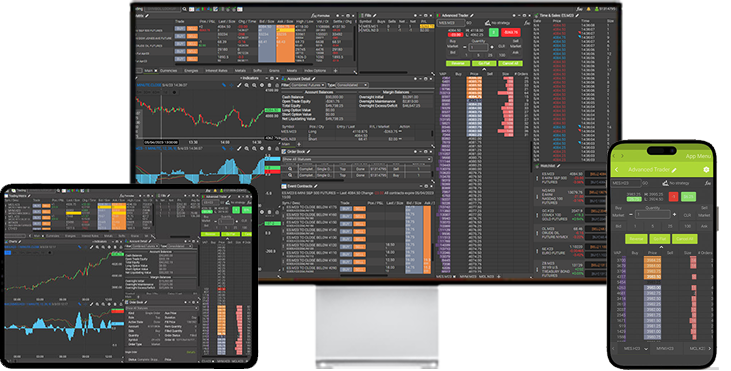The Story Behind the Financial Integrity of the U.S. Futures Markets
Trading volume in futures contracts and options on futures on U.S. markets has risen to more than 500 million contracts annually. And the dollar value of futures contracts traded currently exceeds severalfold the dollar value of common stocks traded on all U.S. stock exchanges.
A requisite for this growth has been the financial integrity of futures markets. While trading in futures contracts obviously involves risks related to price changes, market participants have historically had little reason to be concerned about the security of their funds. Customer losses due to the insolvency of a futures brokerage firm have been virtually non-existent. Indeed, such losses have totaled less over 50 years than the Securities Investor Protection Corporation has paid, on the average, to reimburse customers of the securities industry for member firm insolvency losses each year.
For anyone considering participation in the nation’s futures markets, the reasons behind this continuing and impressive record of financial soundness are worth knowing about.
Daily Cash Settlement
As futures prices move upward and downward, the market value of customers’ open positions increases and decreases. Resulting gains and losses from futures trading are credited or charged to each customer’s account each day following the close of trading. Subject to existing margin requirements, all gains deposited to a customer’s account through this procedure become immediately available to the customer.
Margin Requirements
Buyers and sellers of futures contracts are required to at all times maintain sufficient funds on deposit in their brokerage accounts to cover losses that might be incurred as a result of price changes. Margin deposits provide protection for all market participants. In volatile markets, the exchanges increase margin requirements accordingly. The availability of such funds is what makes daily cash settlements possible under all market conditions.
The Exchange Clearing Houses
Once each purchase of a futures contract is precisely matched to the corresponding sale (a process which occurs each day), the clearing organization of the exchange where the contracts are traded becomes the “buyer to every seller and the seller to every buyer.” The purpose: provide a mechanism that assures the payment of all gains and collection of all losses on a daily basis.
Capital Requirements
Every firm that conducts business with the public as a Futures Commission Merchant must have and maintain sufficient capital to meet its financial obligations to its customers. These requirements are subject to continuous audit and stringent enforcement. Regulatory agencies have the authority to determine compliance on a daily basis and in volatile markets clearing organization can demand that a firm provide additional capital on one hour’s notice!
Segregated Accounts
Firms and principals of firms in the futures industry are required to maintain their customers’ funds and margin deposits in bank accounts which are totally separate from their own. Rules further stipulate that such funds can be used only for the purposes the customers intended and can at no time be commingled with the firm’s funds or the funds of the firm’s principals. Compliance is strictly enforced and regulators possess power to take such immediate action as is considered necessary to protect the security of customers’ money.
Transfer of Market Positions
Should a firm be determined to be in a financial situation that could potentially jeopardize the safety of its customers’ funds, it can be directed to immediately cease operations and transfer all open customer positions in the market to a firm which is financially sound. This is to ensure that adequately margined positions with a troubled firm will not be liquidated at a time when the customer may not wish for them to be liquidated.
Regulation
Regulation of the U.S. futures industry is primarily self-regulation, with the role of the federal Commodity Futures Trading Commission being principally an oversight role (to determine that self-regulation is continuous and effective). Of the total expenditures on futures regulation, more than three-fifths of the cost is presently being paid by the exchanges where futures contracts are traded and by National Futures Association (NFA), the industrywide self-regulatory organization authorized by Congress and established in 1982. The purpose of self-regulation is to assure that those who conduct futures trading business with the public do so in a professional, ethical and honest manner.
NFA’s responsibilities include screening, testing and registering persons applying to conduct business in the futures industry. NFA and the exchanges have responsibility for auditing and enforcing compliance with industry rules. These rules encompass financial requirements, segregation of customers’ funds, accounting procedures, sales activities and, in the case of the exchanges, floor trading practices.
Although there is no guarantee against customer losses due to the insolvency of a futures brokerage firm, the above mechanisms are designed to ensure the financial integrity of this nation’s futures markets, and have in fact minimized the risk of customer losses.
Get Started Now!
Try out our technology for free or open an account and start trading.
© 2010-2025 Generic Trade.










































